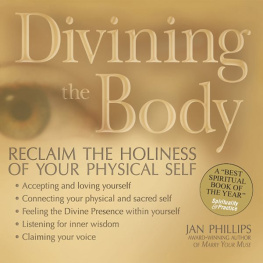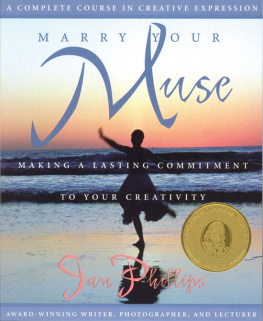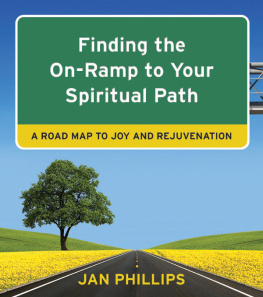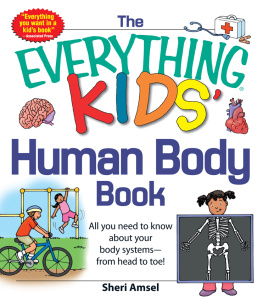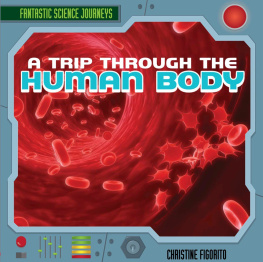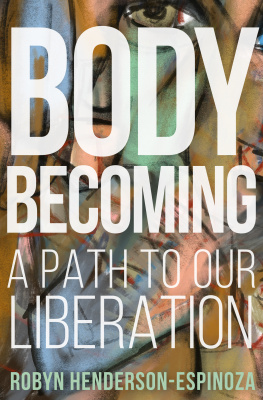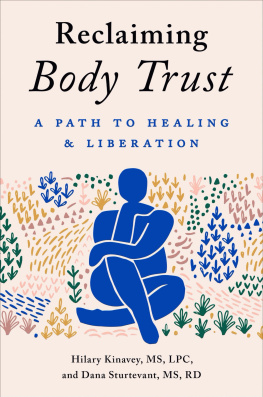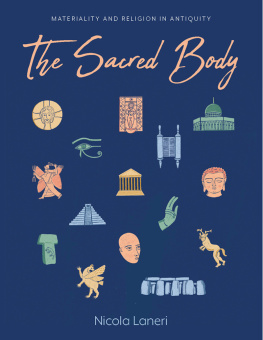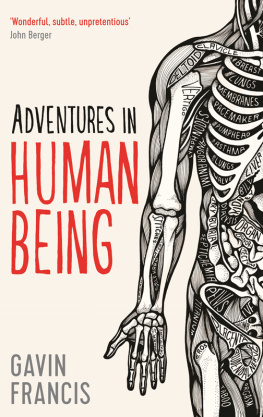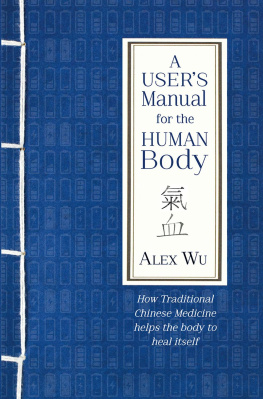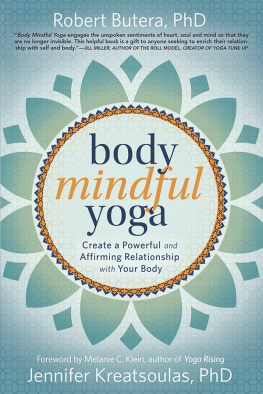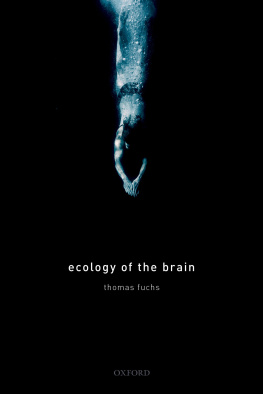
Divining the Body:
Reclaim the Holiness of Your Physical Self
2012 First Digital Edition
All rights reserved. No part of this book may be reproduced or transmitted in any form or by any means,
electronic or mechanical, including photocopying, recording, or by any information storage and retrieval
system, without permission in writing from the publisher.
For information regarding permission to reprint material from this book, please mail or fax your request
in writing to SkyLight Paths Publishing, Permissions Department, at the address / fax number listed
below, or e-mail your request to .
2005 by Jan Phillips
Library of Congress Cataloging-in-Publication Data
Phillips, Jan.
Divining the body : reclaim the holiness of your physical self / Jan Phillips.
p. cm.
Includes bibliographical references.
ISBN-13: 978-1-59473-080-1 (quality pbk.)
ISBN-10: 1-59473-080-6 (quality pbk.)
1. Body, HumanReligious aspects. 2. Spiritual life. I. Title.
BL604.B64P45 2005
202.2dc22
2004026591
Grateful acknowledgment is given for permission to reprint material from the following sources: Coleman Barks, The Essential Rumi; Judi Beach, The Way Hands Bless the Self; Toni Farkas, After Ruth Krauss; Kabir Helminski, The Pocket Rumi Reader, www.sufism.org; Daniel Ladinsky, Love Poems from God and The Gift; Myra Shapiro, Ill See You Thursday; Sandy Supowit, Halves of Necessity. Photos on p. 176 I.H.M General Institute, from Messages from Water by Masaru Emoto, published by Hado Kyoiku Sha Co., Ltd.
Manufactured in the United States of America
Cover Design: Sara Dismukes
SkyLight Paths Publishing is creating a place where people of different spiritual traditions come together for challenge and inspiration, a place where we can help each other understand the mystery that lies at the heart of our existence.
SkyLight Paths sees both believers and seekers as a community that increasingly transcends traditional boundaries of religion and denominationpeople wanting to learn from each other, walking together, finding the way.
SkyLight Paths, Walking Together, Finding the Way, and colophon are trademarks of LongHill Partners, Inc., registered in the U.S. Patent and Trademark Office.
Walking Together, Finding the Way
Published by SkyLight Paths Publishing
A Division of LongHill Partners, Inc.
Sunset Farm Offices, Route 4, P.O. Box 237
Woodstock, VT 05091
Tel: (802) 457-4000 Fax: (802) 457-4004
www.skylightpaths.com
To the Divine in each of us
Many of us are told as children that our bodies are temples of God, houses of the Holy Spirit, and that within our very beings exists a spark of the Divine itself. Following this joyful pronouncement, we also learn that our bodies are dirty, shameful, not to be touched, enjoyed, played with. Were taught to deny ourselves pleasure, to fight temptation, to hold back, to go without, to resist carnal connection.
The Imitation of Christ, attributed to Thomas Kempis, was first published in Latin over five hundred years ago and remains in print today. It has been translated into dozens of languages and has a reputation as being second only to the Bible as a guide and inspiration to Christian believers. In a modern translation, we read: Sometimes you must use violence and resist your sensual appetite bravely. You must pay no attention to what the flesh does or does not desire, taking pains that it be subjected, even by force, to the spirit. And it should be chastised and forced to remain in subjection until it is prepared for anything and is taught to be satisfied with little. You must know that self-love is more harmful to you than anything else in the world. You should give all for all and in no way belong to yourself.
It was this contradiction, this kind of training, that kept me confused and disembodied for the better part of my life. I grew up reading The Imitation of Christ every night before bed, from age eleven through thirteen. I was trying to be as good a Christian as I could be, and I thought if I read that book, Id end up being more Christlike. But its message only helped me sever my soul from my body, kept me from tuning in to its urgent, loving messages, fortified a fear that all light was outside me and all darkness within.
The great tragedy of Western religion is that it elevates disembodied love over embodied love, leading us to believe that it is better to be out of our bodies than in them. Even in the dictionary, the definition for carnal, which simply means of the flesh, is charged with the added connotation: usually stresses the absence of intellectual or moral influence.
Its not specifically a Roman Catholic upbringing such as mine that will create this division from the body, for this mentality has pervaded our cultures and religious traditions for thousands of years. Cultural anthropologists tell us that there was a time when humankind honored its oneness with the natural world and lived in peaceful, full-bodied harmony with nature. But as broader social organization developed, as religion became codified in language and in hierarchy, and as the intellectual became dominant over the physical, we began to separate our souls from our bodies. We forgot we were sparks from the same flame, waves of the same sea, that as much as the Divine is around us, the Divine is within us, experiencing itself through every sense in our bodies. The journey of our lives is a journey of remembering and reconnecting. It is a journey of joy and discovery, a chance to feel and reveal the radiance within. The spiritual path leads inward, for the beloved dwells there in every cell, like the oak in the acorn, the jewel in the mine. The great secret within us is waiting to be told through the living of our lives, waiting to be shared through the pleasures of our senses.
We need to climb back into our bodies and honor them as instruments of our souls. They are the means through which the Divine takes shape in this world, crucibles in which the raging blaze of spirit is transformed into luminous thought, radiant creations, enlightened action. We are the word made flesh, and through our bodies, we are continuing the creation of the universe, physically and metaphysically. It is not happening to us, but through usand the meaning were seeking, the deep joy and passion were after, the enlightenment we long for, all this arrives as we begin to re-pair what cultures and creeds have torn asunder.
In the process of divining our bodies, we embody the Divine as the mystics did. We feel the beloved in every cell, sense the sacred one in every heartbeat, every touch, every image our eyes encounter, every sound our ears behold. Transcending duality, we shift from a sense of self and other to a sense of self in other. When we embrace the Divine within ourselves, it becomes natural to find and love the Divine in others. It is our nature to do this. If we love ourselves tenderly, that feeling of compassion and kindness will seep out of us and transform every relationship in our lives.
This book is an attempt to undo the damage weve sustained living in a culture that thrives on our self-hatred. It is a sanctification of our human bodies, a consecration of ourselves as hosts to the Great Beloved. It is a journey of awe and reverence through the sacred terrain of foot and hand, back and breast, heart and brain. The path to peace is the pathway through ourselves, starting with the inward step, the brave, gentle step toward the Divine within. Godspeed to us all.
A secret turning in us makes the universe turn. Head unaware of feet, and feet head. Neither cares. They keep turning.
Next page
